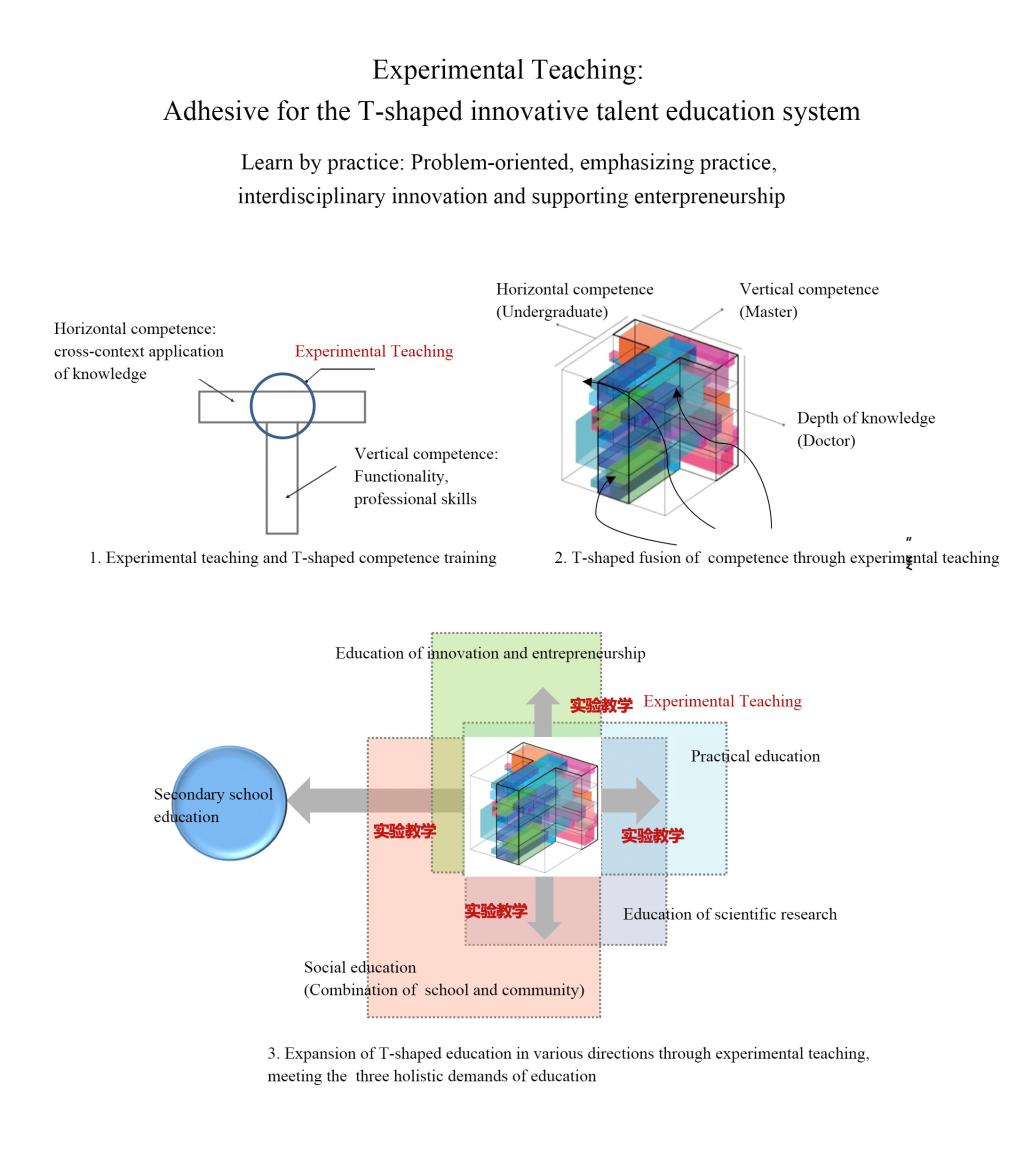Teaching Theories
Creativity is a fundamental driving force for the development of human society. Design nowadays means a unique method of creation and way of thinking, and works also as an engine that drives innovation. Especially in recent years, with the constant renewal of design concepts, means of expression, materials, technologies and processes, Tongji University is required to base its design education on the construction of Double-First-Class Disciplines and carry out the construction of an all-round practical design education concept. In the context of the transition from “Made in China” to “Created in China” in an era of sustainable development, based on the values of human-oriented, innovation-driven and sustainable development and Tongji University’s development slogan: “March forward with the development of our country, make the world better through science and education and construct Tongji into a Chinese world first-class university”, the College of Design and Innovation of Tongji University make the best of the characteristics of the design discipline to build international advanced design education models. With the advantage from the national innovation-driven development strategy and the advanced cultural and creative industry in Shanghai, the College establishes the goal of cultivating international standard leading talents in “sustainable design innovation”, pursuing academic excellence and contributing to the progress of society.
In 2018, the Ministry of Education issued the document Several Opinions Improving the Quality of Undergraduate Teaching in Higher Education Institutions along with the notice to launch a new round of new engineering education reform, marking the shift of the national higher education strategy from scale construction to substantial construction. Education authorities at all levels as well as universities actively propel the promotion of higher education reform, in which experimental teaching reform plays a core part and receives unprecedented attention. The Innovation Field of Tongji University has developed an innovative understanding of experimental teaching in design from the positioning and characteristics of interdisciplinary majors and the needs and trends of society and industry, takes the undergraduate education of innovative talents as the fundamental starting point, focusing on the concept of “intelligent and sustainable design for industrial transformation and future life”, to promote the elevation of practical abilities, command of digital design and construction, utilization of open source hardware and software and innovation and entrepreneurship in design education. The centre emphasizes students’ design innovative thinking and practice, stimulates their active exploration and establishes the experimental course program that combines learning adaptation with teacher instructions.
The Innovation Field launches research and exploration focusing on the relationship between experimental teaching and design education, emphasizing experimental teaching in university laboratories as a combination of theory and practice and laboratories as an important platform to improve students’ innovative thinking and practical skills, and form a relatively complete set of experimental teaching system standards with the union of institution and mechanisms, models and standards and experience and evaluation. Three aspects of the core teaching concept of the Innovation Field are listed as following:
1. Combination of expansion (horizontal) and depth (vertical) competence
Global design is undergoing a revolution from Design Doing to Design Thinking. The trend greatly increases the contributing power of design to social and economic development, and places new demands on the depth, breadth and comprehensiveness of design knowledge. The T-Type innovative interdisciplinary talent education, which combines “vertical competence (expertise and mastery)” and “horizontal competence (extensiveness and integration)”, as well as expansion of the borders of designing, the transformation of learning methods and the adoption of new values mark the forming of the new design education.
To coordinate with the ongoing transformation and the goal of training international standard “sustainable design and innovation” leading talents, the College of Design and Innovation proposed a T-shaped framework for undergraduate, master’s and doctoral education, divided in three levels of “techniques”, “theories” and “command” focusing on various aspects respectively, to train talents in design, research, education and management. The program was awarded the Shanghai Teaching Achievements First Prize in 2017. As an important organic part of the T-shaped talent training system, the Innovation Field adheres to the experimental teaching concept of combining vertical and horizontal abilities, promoting the deepening of professional mastery and the integration of interdisciplinary competence, strengthening the link between breadth and depth, to provide strong support for the education of Design-Thinking interdisciplinary innovators.

2. Combination of theory and practice
The experimental teaching in design disciplines is different from that of science, engineering and medical disciplines. In the current era of global knowledge network, the education of design talents must focus on complex design problems and discover the socio-technical systemic innovation needs. When students solve actual design problems in the context of “collaborative innovation”, they absorb knowledge and convert learnt knowledge to innovative creation through theoretical and experimental situational learning, improve abilities and establish their identity while learning by doing. Problem-solving in design is a highly complex and innovative process of dynamic learning for design majors. It involves reflection on observation and experience, the integrated expression of design thinking, and the interconnection of theoretical and practical knowledge. New knowledge and higher-order ability arise from the “reflection in action” of design experiments, which is wholly different from the traditional learning method of engineering and science that focuses more on logics than on contexts. In the process of experimental teaching, Tongji University adheres to the concept of contextualized experimental teaching, train students to understand and solve actual problems in complicated design systems and improve their innovative skills and knowledge through direct experience and logical problem analysis, thus completing the spiral course of experimental teaching covering problem discovery, situation perception, learning by demonstration, knowledge application, ability practice and interest stimulation.
No.281 Fuxin Road Yangpu District,Shanghai
Email:dioffice@tongji.edu.cn
Tel./Fax.:+86 21 65983432
Tongji University College of Design and Innovation
Copyright ©2020

Scan on WeChat